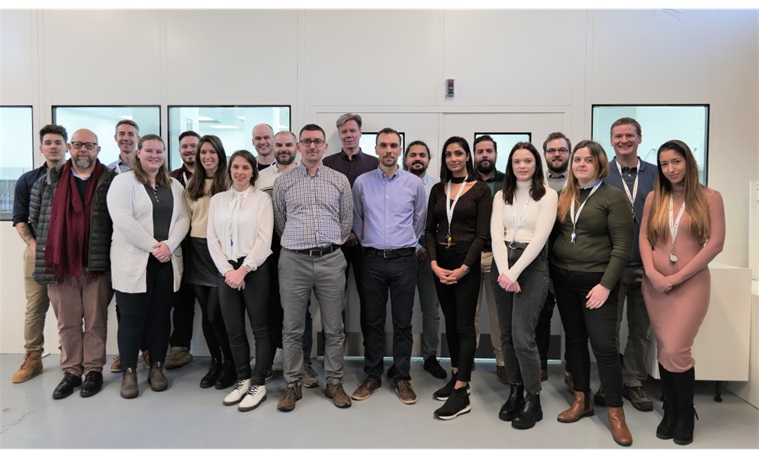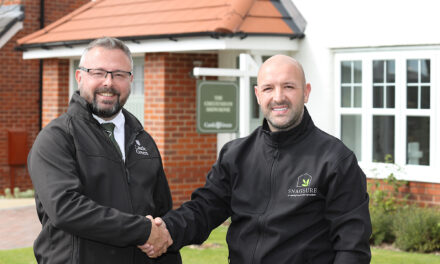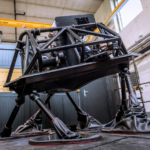A programme funding and enabling North West business-university collaborations to tackle climate change is on target to cut 3,850 tonnes of CO2 emissions.
Eco-I North West, a large-scale research and development initiative, supports small and medium-sized companies (SMEs) from any sector to develop low carbon innovations in partnership with six of the region’s leading universities – Lancaster, Central Lancashire, Cumbria, Liverpool, Liverpool John Moores and Manchester Metropolitan.
Launched in 2020, the three-year programme, which is part funded by the European Regional Development Fund (ERDF), is now working with more than 180 SMEs across the region to create new sustainable technologies, products and services to accelerate the green economic recovery.
With a year remaining, Eco-I NW is on target to help 369 businesses to develop 135 new innovative solutions and remove 3,850 tonnes of CO2 from the atmosphere, supporting the UK government’s target of achieving net zero greenhouse gas emissions by 2050.
The success of the programme and its future vision were the focus of an event at Lancaster University. Journeys to Net Zero: Collaboration Showcase brought together more than 200 stakeholders including many organisations involved in the programme.
Among the speakers was Michael Pawlyn, designer of the Eden Project in Cornwall and an expert in regenerative design and biomimicry, who called for a reframing of sustainability into delivering net positive impacts. Meanwhile, journalist and author John Robb talked about how a sense of place was important in driving regeneration and innovation, while Camila Rock De Luigi, the architect behind Eden North, talked about how the ‘visionary’ project was expected to catalyse the regeneration of Morecambe.
The showcase also set out to inspire the next wave of business-academic collaborations through a series of focussed sessions on future energy technologies, carbon saving, low carbon construction, and peer learning.
But the centrepiece of the event were the inspirational stories of SMEs partnering with universities to drive eco innovation. They included:
- Coniston Stonecraft, a manufacturer based in Coniston, Cumbria, working with the University of Cumbria to decarbonise its production, packaging and distribution processes.
- Brampton2Zero, a non-profit organisation based in Brampton, Cumbria, working with Lancaster University to develop a community energy scheme which uses solar power to decarbonise buildings and supports the introduction of EVs charging stations.
- LiNa Energy, an innovator in high performance solid-state sodium batteries, based in Lancaster, is working with Lancaster University on creating a rapid quality control test for electrolyte quality in batteries to improve production processes, and reduce waste and cost.
- My Medical Mask, based in Bolton, is working with Lancaster University to develop a new medical grade, reusable and transparent respirator mask made from biodegradable materials.
Meanwhile, Typhon Treatment Systems, based in Penrith, was announced as the first winner of the Eco-I NW Innovation Award, following its partnership with Lancaster University PhD student Jainil Shah to further develop its pioneering LED ultraviolet (UV) water treatment technology.
Eco-I NW offers SMEs access to fully-funded interns from a pool of highly motivated and talented students across the six universities, match-funded postgraduate researchers for more long term projects, and capital grants to fund prototypes, pilots and demonstration systems.
Andy Pickard, Manager of Eco-I NW and the Centre for Global Eco-Innovation, said: “This first two years of the Eco-I NW programme have been extremely challenging in view of the pandemic, which highlights the incredible achievement that we have managed to support 180 businesses to lead the region’s transition towards a low carbon economy.
“The key message that came from our showcase event is that Eco-I NW is doing fantastic work to create a melting pot of disruptive innovation, driven by conversation and collaboration. However, to achieve the rapid transition to more sustainable economies and societies in the face of the climate emergency, we need to grow our network of collaborators.
“The North West has the knowledge, people and industry to be world-leading in the transition to a better economy which is sensitive also to the needs of the environment. And with more than 560,000 SMEs in the region, the opportunity for this crucial collective to create green growth is immense.
“This is why I would encourage any small or medium business in the region, whatever their sector and whatever stage of their journey they are on, to make contact with the Eco-I NW team.”

















